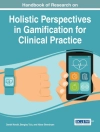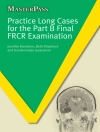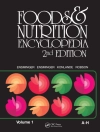While research teams are producing relevant and valid knowledge for health promotion, there is not yet a structured manual and distinct field of health promotion research. This timely ’state-of-the-art‘ handbook contributes to the structuring of such a field of research.
This collection of original contributions explores the major epistemological, methodological, and ethical challenges facing health promotion research. It brings together experts from different ‚research traditions‘ that coexist in the field. The handbook covers the existing knowledge production and sharing practices to delineate the ‚discipline‘ and its agenda for future research. Ultimately, it contributes to the creation of a global community of health promotion researchers.
The handbook is organized by four types of practices (what people actually do) studied in health promotion; the practices of:
- Individuals and populations in relation to their health and itsdeterminants
- Professionals who intervene to improve population health
- Policy-makers and institutions involved in the advocacy, design, and implementation of policies and programs
- Researchers and innovators (academic scholars and global agencies) through which investment in research and production of evidence-based guidelines are made.
Global Handbook of Health Promotion Research, Vol. 1: Mapping Health Promotion Research is a highly relevant reference tool for researchers and graduate students in health promotion, public health, education and socio-health sciences; practitioners in health, medical, and social sectors; policy-makers; and health research administrators.
Inhaltsverzeichnis
Chapter 1. A Global Participatory Process to Structuring the Field of Health Promotion Research: An Introduction.- Chapter 2.
Mapping Health Promotion Research: Organising the Diversity of Research Practices.- Chapter 3. Design-Based Research on Active Family Involvement: Developing a family Toolbox to Support Health Care Professionals Working with Diabetes Management..- Chapter 4. Action research with people being treated for cancer or a rare disease. Health mediation central to their experiences and their inclusion.- Chapter 5. Critical health promotion and participatory research: knowledge production for and with young people experiencing homelessness in Scotland.- Chapter 6. Acting-in-Context: a methodological and theorical approach to understanding Individuals’ Actions in the Context of Poverty .- Chapter 7. Participatory health promotion research with children.- Chapter 8. School-based programs as a research platform for improving oral health and reducing malariamorbidity.- Chapter 9. Proposed title: Fostering cultural safety in healthcare through a decolonizing approach to research
with, for and by Indigenous communities.- Chapter 10. Doing research with people: Hepatitis C and intensive engagement with high-risk occupational groups in Karachi, Pakistan.- Chapter 11. Respectful Maternity Care: A Methodological Journey from Research to Policy and Action.- Chapter 12. Valuing indigenous health promotion knowledge and practices: the local dialogue workshop as a method to engage and empower matrons and other traditional healers in Haiti.- Chapter 13. Aligning research practices with health promotion values: Ethical Considerations from the Community Health Worker Common Indicators Project.- Chapter 14. Investing in health promotion research among Community Health Workers in semi-rural Uganda using a partnership approach.- Chapter 15. Intersectoriality and health promotion research: the perspective of practitioners from a Brazilianexperience .- Chapter 16. Capabilities and transdisciplinary co-production of knowledge: Linking the social practices of researchers, policymakers, professionals, and populations to promote active lifestyles.- Chapter 17. Conducting embedded health promotion research: Lessons learned from the Health On the Go study in Ecuador.- Chapter 18. Doing collaborative health promotion research in a complex setting. Lessons learned from the
COMPLETE project in Norway .- Chapter 19. Researching the Process of Implementing Mental Health Promotion: Case studies on interventions with disadvantaged young people.- Chapter 20. Skill-based health education for health promotion among school adolescents through participatory action research: A case from Nepal .- Chapter 21. Evaluating health promotion in schools: a contextual action-oriented research approach.- Chapter 22. Developing school health promotion through research : An example of a participatory action research project .- Chapter 23. Fourth Generation Realist Evaluation: Research Practice to Empower the NGO. A Reflection on the Case of Sport for Social Change .- Chapter 24. A successful intervention research collaboration between a supermarket chain, local government, non-government organisation, and academic researchers: The Eat Well @ IGA healthy supermarket partnership.- Chapter 25. Participatory approaches to research intersectoral actions in local communities : Using theory of change, systems thinking and qualitative research to engage different stakeholders and foster transformative research processes .- Chapter 26. Research on complex health promotion interventions in local community settings.- Chapter 27. The contribution of health promotion re-search in advancing local policies: new knowledge, lexicon, and practice-research network.- Chapter 28. Implementation research on comprehensive sexuality education in Ghana: Lessons for health promotion research .- Chapter 29. Oral Health promotion intervention/research: a pathway to social justice applied to the context of New Caledonia .- Chapter 30. Methodological Reflections on ‘SMART Eating’ Trial: Lessons for Health Promotion Practice Development .- Chapter 31. Researching the practices of policy makers in implementing a social policy intervention in Ghana .- Chapter 32. Capturing complexity in health promotion intervention research : Conducting critical realist evaluation .- Chapter 33. Using critical theory to research commercial determinants of health : Health impact assessment of the practices and products of transnational corporations .- Chapter 34. Streamlining Knowledge for better health policies: the “Health Promotion and Disease Prevention Knowledge Gateway.- Chapter 35. Collaborative Health Promotion Research in Europe – Experiences and relevance for health promotion at the municipal level.- Chapter 36. Producing and Sharing Knowledge: A collaborative work to produce the New Greek Child Health Booklet .- Chapter 37. From the Production to the Use of Scientific Knowledge: A Continuous Dialogue Between Researchers, Knowledge mobilization specialists and Users.- Chapter 38. A critical health promotion research approach using the Red Lotus Critical Health Promotion Model .- Chapter 39. Making Reflexivity and Emotions visible. The contribution of Logbooks and Polar Semantic Maps in Health Promotion Research..- Chapter 40. Steering committee: participatory device to support knowledge flow and utilization in health promotion .- Chapter 41. Reflections on health promotion research in the field of health-promoting health care: The what, why and how of the Viennese tradition.- Chapter 42. Addressing the complexity of school health promotion through interdisciplinary approaches– an invitation to think wildly about research.- Chapter 43. Fitting Health Promotion Research with Real-Life Conditions: Viability Evaluation .- Chapter 44. A system’s approach to research practice in the co-production of evidence aboutpartnership-based health promotion interventions.- Chapter 45. Researching the Aesthetics of Health Promotion Interventions: Reflections on Fit to Drive, a Long-running Road Safety Education Program.- Chapter 46. Researchers as policy Entrepreneurs for Structural Change: Interactive research for promoting processes towards health equity.- Chapter 47. Reflections on mainstreaming health equity in a large research collaboration: “If I can’t dance it is not my revolution”.- Chapter 48. Studying the Case de Santé de Toulouse (France) as a propaedeutic step.- Chapter 49. Brazilian experiences in interdisciplinary networks: from advocacy to intersectoral participatory research and implementation.- Chapter 50. Researching a diverse epistemic social movement : The challenges and rewards of European Healthy Cities realist synthesis.- Chapter 51. Researching Health for All in South Australia: reflections on sustainability and partnership.- Chapter 52. Markers of Ethical References in Health Promotion Research.- Chapter 53. Markers of the Objects Studied in Health Promotion Research.- Chapter 52. Markers of an Epistemological Framework in Health Promotion Research.- Chapter 53. Conclusion: Characterising the Field of Health Promotion Research.
Über den Autor
Louise Potvin is currently professor at the Department of Social and Preventive Medicine, School of Public Health (ESPUM), Université de Montréal, Canada. She is the scientific director of the Centre de recherche en santé publique, the largest grouping of researchers dedicated to public health in Québec. She holds the Canada Research Chair in Community Approaches and Health Inequalities. She is a founder of Population Health Intervention Research, a domain of scientific endeavour that seeks to develop a cumulative body of knowledge on public health interventions, their planning, implementation, scaling up and sustainability. She is also a leading figure in health promotion research, more specifically through her work on the role of local environments in health inequality and local intersectoral action.
Didier Jourdan is the chair holder of the UNESCO chair ‚Global Health & Education‘ and head of the WHO Collaborating Centre for “Research in Education & Health”. He is full professor, former dean of the Faculty of Education and vice president of University of Clermont Auvergne in Clermont-Ferrand France. He used to be president of the “prevention, education and health promotion” commission of the French High Council for Public Health and director of the Health Promotion Division of the French National Public Health Agency. His research activities focus on the impact of health promotion interventions, particularly with regard to health inequalities, implementation mechanisms, professional activity and ethical issues.












